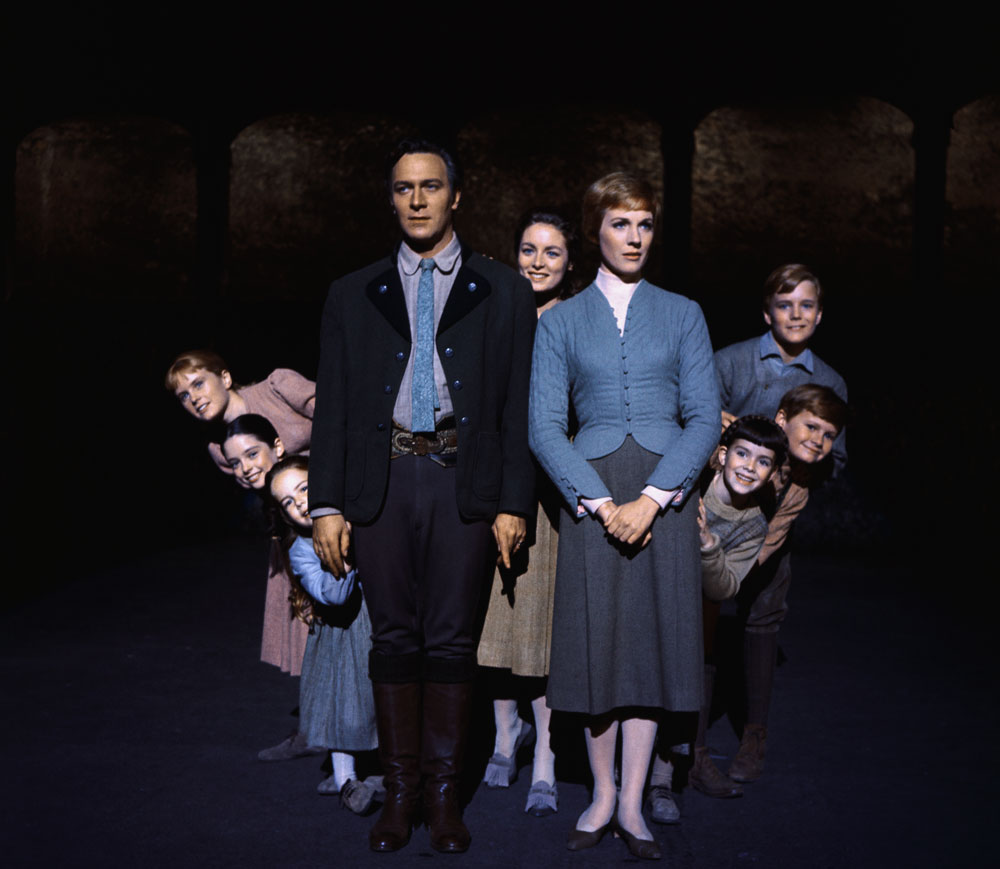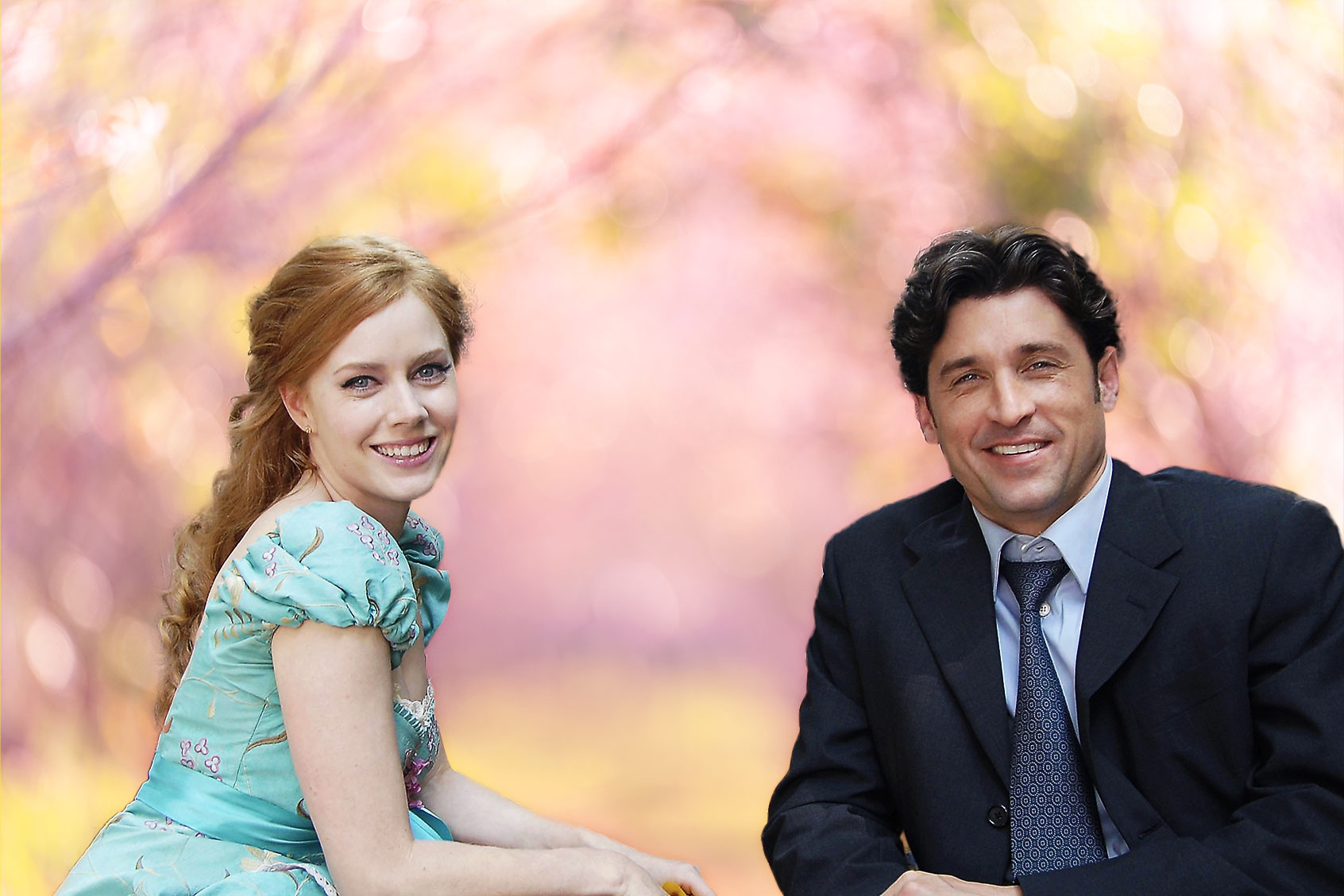Are you a rich, handsome dad with dark brown hair?
Did your late wife, whose existence proves that you’re not afraid of commitment, conveniently die just when you were approaching prime silver-fox age?
Does the fact that you’re traumatized by her death explain why you’re such a Grinch and signal that you have a sensitive side, thus endearing you to viewers?
If you answered yes to the questions above, then congratulations: You may be entitled to a princess. She’ll light up your life, raise your kids for you (because heaven knows you can’t do it yourself), and, for reasons that will become clear soon enough, you can kiss your curtains goodbye.
[The widower] and his quirky beloved enter each other’s lives conveniently, almost accidentally, without actively searching for romance.
You may be one of the following people: Captain Georg Von Trapp (Christopher Plummer) in “The Sound of Music,” Maxwell Sheffield (Charles Shaughnessy) in “The Nanny” or Robert Philip (Patrick Dempsey) in Disney’s “Enchanted.” These characters have all lost wives, either through death or, in Robert’s case, abandonment. The fact that they were married in the first place gives them a fundamental innocence. Their dark hair represents their seriousness and practicality, which later contrasts with the whimsy of the young women — Maria, Fran and Giselle — who end up winning them over. The fact that viewers cheer on and even idolize these relationships speaks to our deep societal discomfort around any situation where someone seeking love actually has to expose themselves as being capable of desire.
Here’s what characterizes the romances of a heartthrob widower: He and his quirky beloved enter each other’s lives conveniently, almost accidentally, without actively searching for romance — a quest that would ruin their aura of innocence. The eccentric young woman brings new energy to the lives of the widower’s languishing children: Maria (Julie Andrews) teaches Captain Von Trapp’s kids to sing and dance, Fran (Fran Drescher) wins over Mr. Sheffield’s kids with her flashy sense of style and New York Jewish sense of humor, and the simple fact that Giselle (Amy Adams) is a real-life princess sends Robert’s daughter over the moon.
And as go the children, so go their fathers, who start out as emotionally closed-off, jaded middle-aged men and then, thanks to the women who’ve fallen into their lives, blossom into people capable of enjoying the beauty and fun of everyday life. But it’s not only the men who change; in “Enchanted” and “The Sound of Music,” the women change, too. Love tames them, and as each movie goes on, they go from being utterly ridiculous to having only vague hints of a sense of wonder. Giselle starts straightening her hair.
 Julie Andrews and Christopher Plummer are flanked on all sides by their children, all members of the singing Von Trapp family, in this publicity handout from the 1965 adaption of the Rogers and Hammerstein musical, The Sound of Music (Bettmann/Getty Images)
Julie Andrews and Christopher Plummer are flanked on all sides by their children, all members of the singing Von Trapp family, in this publicity handout from the 1965 adaption of the Rogers and Hammerstein musical, The Sound of Music (Bettmann/Getty Images)
Part of what makes the widowers so appealing to viewers is their innocence and passivity. At the time “The Nanny” begins, for instance, Mr. Sheffield has gone on very few dates since his wife’s death. As the series progresses, he’s reluctant to pursue a relationship with Fran because he’s concerned for the children, who sometimes seem to have coped with their mother’s death better than he has.
Mr. Sheffield’s timidity when it comes to relationships, and the extent to which his sexuality takes the back seat, makes him an almost blank slate onto whom Fran — and the viewers — can impose their own desires. He doesn’t want to kiss “Miss Fine,” but if she kisses him, he’s pleased. He doesn’t want her to act unprofessional, but when she does, he falls deeper into a love for her that he struggles to express. In real life, someone with these issues would likely never find love — neither would a person who expected this sort of behavior from potential partners.
And while pop culture’s favorite widowers, like Mr. Sheffield, may struggle to share their feelings with the object of their affections, they and their convenient love interests tend to fall for one another with unbelievable synchronicity — their feelings appear to progress at exactly the same rate. In real life, part of being a human being means navigating and trying to reconcile people’s differing but still valid desires. The stories of these happy widowers appear to ignore that fact.
In “Enchanted,” the trope of the widower-dad combines with traditional representations of women in Disney princess movies — where love finds and saves them without their having to do anything at all — to build up to a climax of mutual passivity.
Just as, in “Sleeping Beauty,” Aurora zonks out, only to be awoken by her knight-in-shining-armor, near the end of “Enchanted,” Giselle falls victim to an evil witch’s spell that conveniently puts her to sleep. When the clock strikes midnight, she’ll die — unless, Robert realizes, she gets “true love’s kiss. It’s the most powerful thing in the world.” After Giselle’s fiancé tries making out with her to no avail, proving that he’s not her “true love,” he encourages Robert to give it a try. Even Robert’s girlfriend yells at him to just do it already. He hesitates. “It’s not possible. Couldn’t be me,” he says, knowing full well it’s him.
Apparently, since Giselle and Robert are both in relationships with other people, the only way that they can have their “storybook ending” is if a literal evil witch provides the perfect excuse for them to avoid expressing their emotions in a healthy way.
Mr. Sheffield’s timidity when it comes to relationships, and the extent to which his sexuality takes the back seat, makes him an almost blank slate.
Passing out and hoping that a hot guy makes out with your unconscious body is, it’s safe to say, a pretty impractical way to find your true love. Yet, the only way Giselle and Robert can finally hook up without it being a bad look is if the circumstances surrounding their first kiss are non-consensual on both sides — one party asleep, the other party being yelled at to kiss the woman or else risk her death.
As audience members who love these characters for their purity, some of the clear toxicity of their relationship is on us. It’s hard to face the fact that in real life, there is no magical way to force together two people who are unwilling to state their feelings. And it’s worth wondering why we’re so passionate about love stories that play out so passively.
Ouviram isso? É a doce e melodiosa voz da #TheNanny chegando dia 14 de dezembro no meu app 🤩 pic.twitter.com/mdx1N5mQpS
— Max Brasil (@StreamMaxBR) December 7, 2022
Would we still like Mr. Sheffield if, instead of using his children as an excuse to keep Fran at arm’s length for years, he boldly pursued the love for her that he so obviously felt? And would we forgive Maria if she weren’t a virginal wannabe nun — if, instead of looking embarrassed after she shares a romantic moment dancing with Captain Von Trapp, she actively courted him?
The similarities between “The Nanny” and “The Sound of Music” are intentional. According to Cheat Sheet, when Fran Drescher was pitching her show to the head of CBS, this was her logline: “Imagine ‘The Sound of Music,’ but instead of Julie Andrews, I come to the door.”
Throughout the series, “The Nanny” displays self-awareness by playing with this trope. In the pilot episode, for example, when Mr. Sheffield tells his son to give the new nanny candidate a chance, Fran says “Yeah, I haven’t even sung ‘Climb Ev’ry Mountain’ yet,” referring to a song from the movie.
What makes “The Nanny” unique is the breath of fresh air brought by curly-haired, mini-skirted Fran, with her yenta mother and her senile yet groovy Romanian immigrant grandmother. Whereas Maria is, to some degree, proper and ladylike in her focus on the children’s wellbeing, Fran is forward and intentional about reminding members of the Sheffield household of her desire for “a husband and a house in Great Neck.” To Fran’s credit, she constantly complains to Mr. Sheffield about his unwillingness to commit, and once he does, she keeps being her wacky self. But the premise of the romance remains fundamentally similar to the one in “The Sound of Music” — a traumatized widower falls in love with a stranger who just shows up at the door.
It’s worth wondering why we’re so passionate about love stories that play out so passively.
These three works are far from the only rom-coms where a woman falls into the arms of a sensitive widower. It’s become quite the rom-com subgenre (not to mention the festive iterations for Hallmark Channel-type movies).
In “The Holiday,” Jude Law’s widower is minding his own business when a house swap delivers Cameron Diaz to him, and his appeal only increases when he “confesses” that he can’t bring a woman into his daughters’ lives unless the relationship has a future. In “Sleepless in Seattle,” a child meddles in his widower-dad’s romantic life to literally force him to meet with a woman he shouldn’t have had to be forced to meet. And then there’s the very smart episode of “Sex and the City” where Charlotte picks up a widower at a cemetery, only to find by the end of the episode that the guy played up the traumatized-widower angle on purpose to get dates with multiple women.
Ultimately, it’s worth questioning why someone as magical as Giselle would fall for an embittered muggle like Richard in the first place, why Maria would be attracted to someone as mean as Captain Von Trapp, and why the lively and delightful Fran would be into an emotionally repressed man who never lets her meet the celebrities he works with (even though she would surely work her Flushing charm on them).
Most of all, it’s worth asking: What does it say about us viewers that we fall for the bit? Instead of idolizing and aspiring to passivity, maybe we should accept that love sometimes means learning to be brave, say how we really feel, and accept that the response might not be the one we hoped for.
[CORRECTION: A previous version of this story incorrectly labeled Robert from “Enchanted” as a widower, although in fact his wife had abandoned him and his daughter. This has been clarified.]
Read more
about this topic

